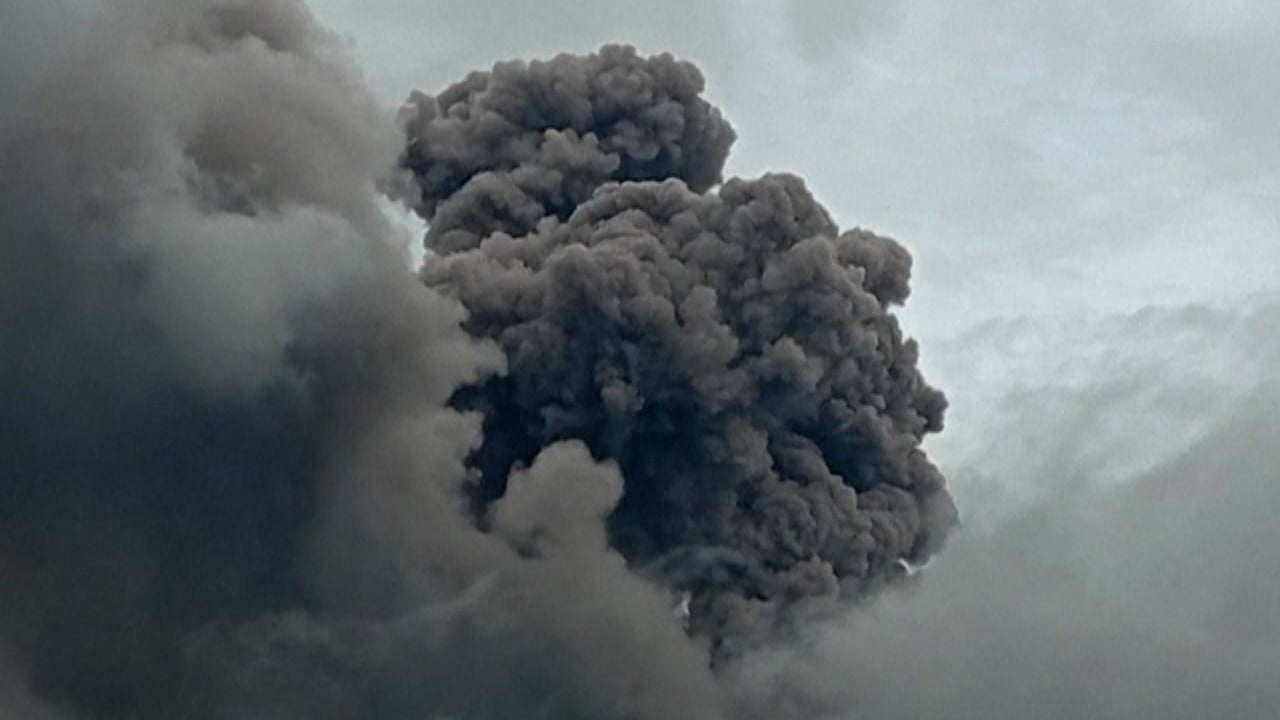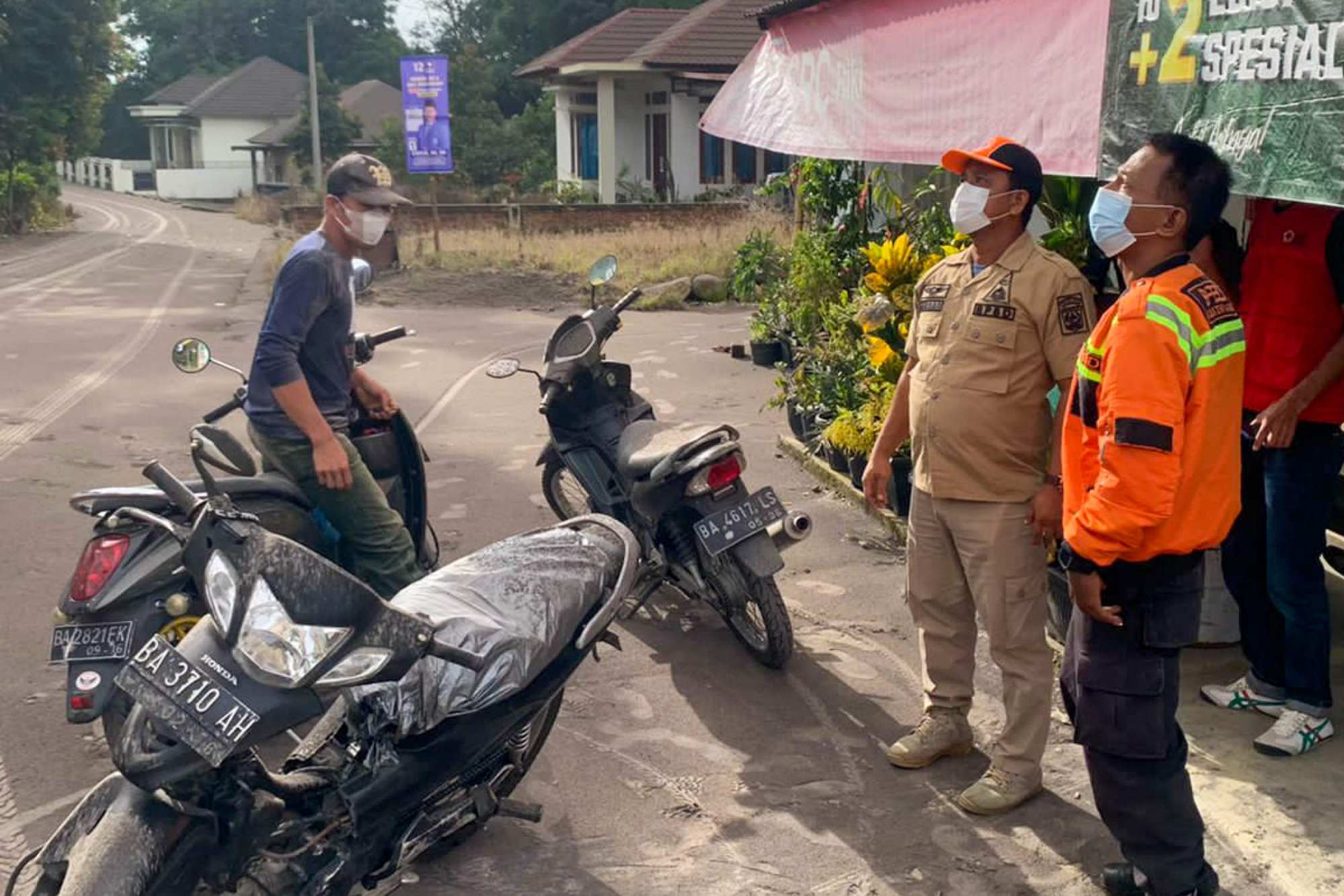
01:42
Indonesia volcano erupts, spewing ash 3km into sky
11 climbers killed after Indonesia volcano erupts, spewing ash 3km into sky
- The bodies of the climbers were discovered on Monday as a search for 12 more missing people was temporarily halted over safety concerns
- Mount Marapi, which means “Mountain of Fire”, has been spewing ash rain over Indonesia’s Sumatra island since it began erupting on Sunday
Three survivors were found on Monday along with the bodies of the 11 climbers, among 75 people who were in the area at the time of the eruption said Jodi Haryawan, spokesman for the local search and rescue team.
The 2,891-metre high volcano spewed ash as high as 3km (9,843ft) into the air on Sunday.
Authorities have raised the alert to the second-highest level and prohibited residents from going within 3km of the crater.
Video footage showed a huge cloud of volcanic ash spread widely across the sky and cars and roads covered with ash.
A small eruption on Monday and the search for survivors to be suspended, Jodi said. “It’s too dangerous if we continue searching now,” he added.
Mineral-rich Indonesia faces calls to ban illegal mines amid latest tragedy
There were 49 climbers evacuated from the area earlier on Monday and many were being treated for burns, he said.
Ahmad Rifandi, an official at the Mount Marapi monitoring station, said that ash rain had been observed after the eruption.
“For the ash rain, it has reached to Bukittinggi city,” he said, referring to the third-largest city in West Sumatra that has a population of more than 100,000.
“It is hoped for people who have activities around Marapi mountain to wear hats, glasses and masks.”
Marapi is one of the most-active volcanoes on Sumatra island and its most deadly eruption was in April 1979, when 60 people died.
Indonesia sits on the Pacific’s so-called “Ring of Fire” and has 127 active volcanoes, according to the volcanology agency.

Also on Sunday, rescuers said they had recovered the body of a man buried under tons of mud and rocks from flash floods and a landslide that crashed on to a hilly village on Sumatra island. Officials said 11 people are still missing.
Tons of mud, rocks and trees rolled down from a mountain late on Friday triggered by torrential rain, reaching a river that burst its banks and tore through mountainside villages near the popular Lake Toba in North Sumatra province.
Rescuers used excavators, dogs and sometimes their bare hands to shift the rubble in the worst-hit village as they searched for the dead and missing, said Sariman Sitorus, the spokesman for the local Search and Rescue Agency.
They also deployed several divers equipped with sonar detection to find possible victims swept into Lake Toba, Sitorus said.
He said rescuers late on Saturday pulled out a mud-caked body on the lakeside, about 500 metres from the devastated Senior Bakara Hotel. The man was identified as a hotel employee.

The National Disaster Management Agency said the landslide and flash floods damaged at least 35 houses, a church, a school and a hotel in the village of Simangulampe, forcing about 55 families to flee to a temporary government shelter.
Seasonal rain from about October to March frequently causes flooding and landslides in Indonesia, an archipelago of 17,000 islands where millions of people live in mountainous areas or near fertile flood plains.
The 1,145-square km (440-square-mile) Lake Toba, formed out of an ancient super volcano, is a popular sightseeing destination on the island of Sumatra and one of 10 stunning natural attractions in Indonesia that the government aims to develop as magnets for international tourists.
Additional reporting by Associated Press


.png?itok=arIb17P0)